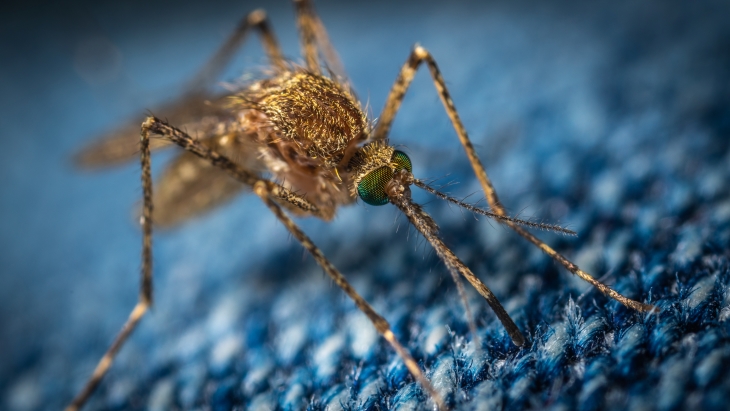June 2019: The Indo-African Dengue Vaccine Development
The first phase
With the threat posed by dengue, and widespread outbreaks occurring every year in India and Africa, the development of an effective, global vaccine is a priority in health care. This initiated the Indo-African collaboration on Dengue Vaccine Development, which is supported by a grant from Infosys co-founder, Narayana Murthy.
The program has been in place for nearly two years and researchers from the KAVI Centre for Clinical Research at the University of Nairobi, Kenya, and NCBS have been progressing steadily in their efforts towards this global vaccine. In June of this year, the teams held a workshop at the KAVI Centre, where they performed Oxford Nanopore sequencing on 20 samples of antibiotic-resistant Neisseria gonorrhoeae. The aim is to understand why these strains are displaying this resistance, and the KAVI Centre is continuing this sequencing with their large set of samples.
NCBS team with the participants of the Pathogen Sequencing Workshop at KAVI Centre
The sequencing employs the portable MinION device which is a real-time RNA and DNA sequencer. It works similarly to a pendrive, so it can be used even where there are limited facilities, and the information can be saved on the chip and analysed later. This avoids the problem of deterioration of genetic material during transportation. Using this technology at NCBS, and training KAVI researchers with it, is a part of the capacity building of this program. Through this, high quality Dengue diversity analysis and the building of viral recombinants will follow.
A key aspect of the collaboration has been setting up a complete genome sequencing facility at KAVI. This allows the researchers to analyse all the samples of Dengue and other pathogens at their own centre. The workshops and equipment setup are a huge step towards a new paradigm for KAVI. Prof. Sudhir Krishna of NCBS explains why: “It is a game changer in terms of attitudes, getting the technology working on a reasonable scale, and laying the foundation for sequencing Dengue and other pathogens in East Africa.”
Why the KAVI Centre?
In East Africa, there are multiple disease outbreaks, and clinical research, such as at the KAVI Centre, is vital for the development of interventions. “The KAVI Centre has a very good immunological laboratory which allows them to do clinical studies very well,” remarks Dr Meenakshi Shankar Iyer who works with the KAVI Centre on their bioinformatics setup. With the bioinformatics developed at KAVI, the groundwork for their researchers to analyse and share their findings on the diverse dengue strains will be complete.
Dengue displays diversity in its genetic makeup, with four different serotypes. These are genetically distinct to an extent which makes it difficult to develop a vaccine for all. The existing vaccines are not effective against all serotypes, and can even create adverse reactions based on an individual’s exposure to Dengue. This is especially true in the case of children.
The KAVI centre is in the process of obtaining samples from coastal regions in Kenya (such as Mombasa), where outbreaks of Dengue are common. “This will help in identifying the genetic backbone of Dengue,” explains Dr Arun Sankaradoss (NCBS), who is coordinating much of this project. More than 319 samples from different institutes in India have already been sequenced. Once sufficient samples are processed from both Africa and India, the researchers can look at developing an effective vaccine for all serotypes.
The workshop at the KAVI Centre was conducted by Dr Arun Sankaradoss, Ashok Rao, Dr Awadhesh Pandit, Dr Meenakshi Shankar Iyer, Rupsy Khurana, and Prof. Sudhir Krishna of NCBS.
The future of the collaboration
Prof. Sudhir Krishna is keen to develop a more adaptive biomedical ecosystem with a new ideology. He stresses collaboration, public health, innovation in products, and entrepreneurship, for the ecosystem this program exists in. Developing this program as one that is sustainable and scalable is important to the team and has led to conversations with more organisations to expand the reach and strength of this biomedical ecosystem. In addition to the primary goals related to Dengue, Prof. Krishna says, “We would like to create a platform for crosstalk, and good things will happen.”
NCBS and KAVI teams with members of the Centre for Disease Control, Africa










0 Comments